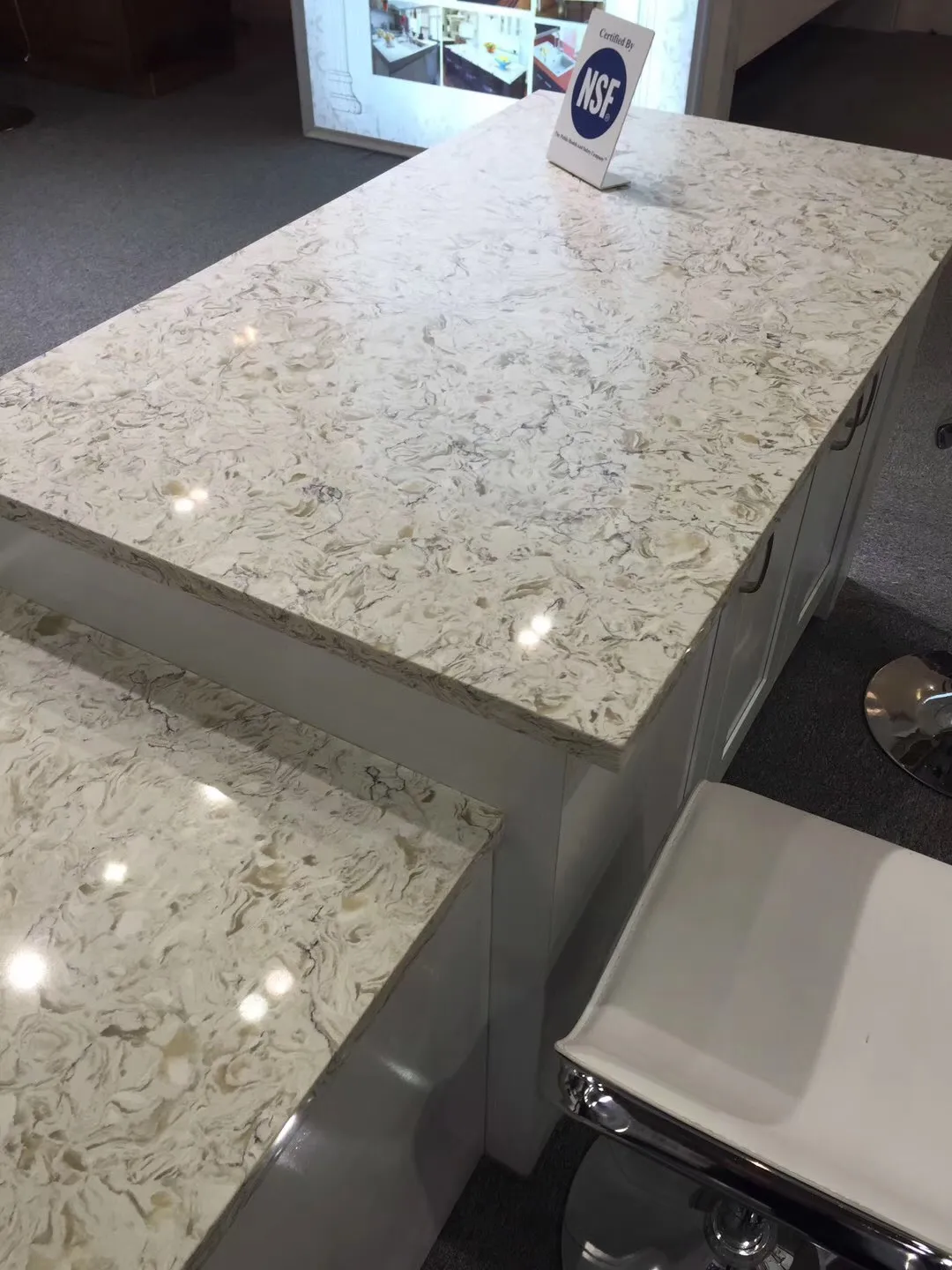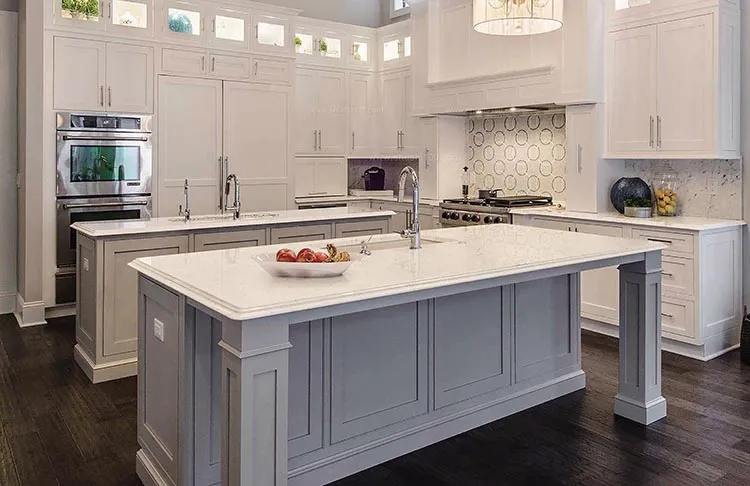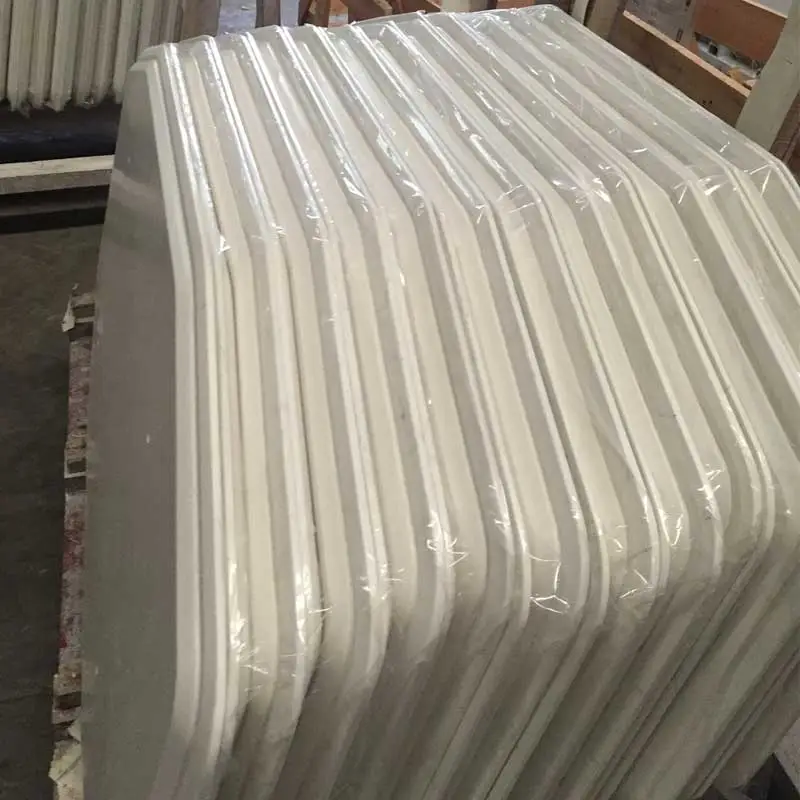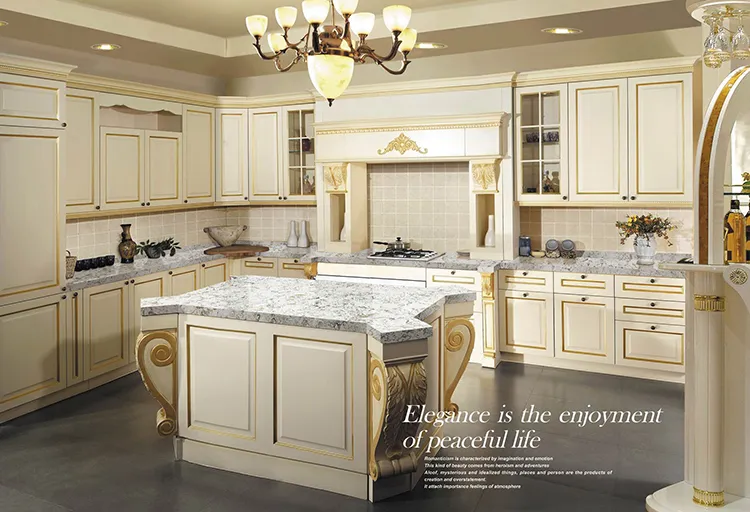Quartz countertops are widely used in home environments such as kitchens and bathrooms due to their durability, beautiful appearance and easy maintenance, and are favored by consumers. However, many consumers and even some industry professionals are confused about the classification of quartz countertops, especially whether it belongs to the category of "engineered stone".
This article will explore in detail whether quartz worktops are considered engineered stone, and its differences from natural stone and other artificial materials, aiming to provide readers with a clear understanding.

What is engineered stone?
To answer the question of "whether quartz countertops are considered engineered stone", we first need to clarify the definition of "engineered stone".
Engineered stone is a stone material synthesized by artificial processing of natural stone powder or stone chips and other auxiliary materials. In the manufacturing process, it usually uses resin as a binder, and natural stone waste is compressed and solidified through special processes and equipment to form a building material with high strength, stain resistance and diverse appearance. According to the natural stone composition used, engineered stone can be divided into many types, such as quartz stone, synthetic marble, etc.
The main characteristics of engineered stone include the following:
● Combination of ingredients: It is made by mixing a high proportion of natural stone ingredients with a small amount of adhesive. The proportion of natural ingredients in different types of engineered stone varies, usually above 90%.
● Artificial processing: Unlike the purely natural formation of natural stone, engineered stone is made through artificial intervention and has more consistent physical properties and appearance design.
● Stability and durability: Since engineered stone can artificially control parameters such as ingredient ratio and density during the production process, it is usually more durable than some natural stones and more controllable in terms of color, pattern, etc.
Based on the above definition, we can regard engineered stone as a building material between natural stone and completely artificial stone. It has the beauty and physical properties of natural stone, and has the advantages of artificial manufacturing, such as strong controllability and high durability.

What are the characteristics of quartz countertops?
Quartz countertops are materials formed by high-pressure pressing of natural quartz particles and resin adhesives. Due to their high hardness, strong wear resistance and beautiful appearance, they have become ideal countertop materials for kitchens, bathrooms and other places.
Composition of quartz worktops
The main component of quartz countertops is quartz minerals, which usually contain up to 90%-95%. Quartz, as a mineral widely found in nature, has extremely high hardness and durability, second only to diamonds and corundum. In addition to quartz particles, quartz countertops also contain a small amount of resin and pigment. The role of resin is to act as a binder to tightly bind the quartz particles, while the pigment gives the countertop rich colors and patterns.
Production process of quartz countertops
The production process of quartz worktops mainly includes several steps: mixing, pressing, curing and surface treatment:
● Mixing: Mix natural quartz particles, resin and pigment in proportion to ensure that the quartz particles can be evenly distributed throughout the material.
● Pressing: The mixed material is pressed into shape under high temperature and high pressure through special equipment. This process allows the quartz particles and resin to be tightly combined to form a dense structure, which greatly improves the hardness and strength of the quartz countertop.
● Curing: The pressed quartz worktop needs to be heat treated to ensure that the material is completely cured and achieves the best physical properties.
● Surface treatment: The cured quartz worktop needs to be ground and polished to make its surface smooth and beautiful. At the same time, surface treatment can also enhance the anti-fouling ability of the quartz countertop, which is convenient for daily cleaning and maintenance.
Characteristics of quartz countertops
Quartz countertops have many excellent characteristics due to their specific composition and manufacturing process:
● High hardness and wear resistance: Quartz worktops have a very high hardness due to their quartz content of more than 90%, and the Mohs hardness can reach more than 7, which is not easy to be scratched.
● Heat resistance and impact resistance: Quartz worktops have strong heat resistance and impact resistance, and can withstand high-temperature objects and slight impacts commonly seen in daily kitchens, and are not prone to cracking or deformation.
● Strong anti-fouling: The surface of quartz countertops is dense and smooth, with almost no pores, and is not easy to absorb liquids, so it can effectively resist stains, oil stains and water stains in the kitchen, and is very convenient to clean.
● Diverse designs: Since different colors of pigments can be added during the production process, quartz worktops can present a variety of different colors and patterns to meet the aesthetic needs of different consumers.

Are quartz countertops engineered stones?
Based on the composition, manufacturing process, and difference between quartz worktops and natural stone, they can be clearly classified as engineered stone. Here are the reasons:
The main components of quartz are consistent with the definition of engineered stone
One of the core characteristics of engineered stone is that it is a mixture of natural stone components and adhesives, while the main component of quartz countertops is natural quartz particles, and its quartz content is usually as high as 90%-95%. This high proportion of natural minerals gives quartz countertops similar physical properties to natural stone, such as high hardness and wear resistance. At the same time, quartz countertops also rely on resin as a binder, which is exactly the same as the basic composition of engineered stone.
Artificial processing technology meets the standards of engineered stone
The production process of quartz countertops fully meets the definition of engineered stone. It combines natural quartz with resin through artificial processing, and forms a building material with consistency and stability after pressing and curing. Compared with the uncontrollability of natural stone, the production process of quartz stone can strictly control every link to ensure the uniformity of physical properties, color and texture of the product. This is also one of the typical characteristics of engineered stone.
Physical properties meet the requirements of engineered stone
The high hardness, wear resistance, and stain resistance of quartz worktops fully meet the high requirements of engineered stone for material performance. It not only has excellent physical properties and can withstand various challenges in daily use, but also due to the uniformity and density of its surface treatment, quartz countertops are superior to many natural stones in durability and ease of maintenance, which is also one of the significant advantages of engineered stone.
The diverse design of quartz is consistent with the characteristics of engineered stone
Another significant feature of engineered stone is that it can be artificially designed and manufactured to provide a variety of appearance effects. Quartz countertops can add different colors of pigments during the manufacturing process to simulate the texture of natural stone, and even create unique patterns, which makes quartz worktops more flexible and rich in visual effects. Compared with the limitations of natural stone, the diverse design of quartz is undoubtedly more in line with the characteristics of engineered stone.

What is the difference between quartz and other engineered stones?
Although quartz countertops are engineered stones, they have some significant differences from other types of engineered stones (such as synthetic marble, synthetic granite, etc.).
Differences in composition
● Quartz: The main component of quartz is natural quartz particles, and the proportion of quartz is usually as high as 90% or more, which makes quartz very hard and wear-resistant.
● Synthetic marble: The main component of synthetic marble is natural marble powder, which is usually bonded with more resin, so its hardness and wear resistance are not as good as quartz.
● Synthetic granite: Synthetic granite is made of natural granite powder and resin, and has a granite-like appearance and performance, but is also slightly lower in hardness and heat resistance than quartz.
Differences in physical properties
Due to the different natural stone components used by different types of engineered stones, they also differ in physical properties. The high hardness and wear resistance of quartz make it an ideal choice for kitchen and bathroom countertops, while synthetic marble and synthetic granite are more suitable for occasions with strong decorative features but relatively low physical requirements.
Differences in appearance design
The appearance design of quartz worktops is more diverse, and can simulate the texture of a variety of natural stones, and can even be customized according to customer needs. In contrast, the appearance design of synthetic marble and synthetic granite is relatively limited, and can usually only imitate the texture of natural stone.

